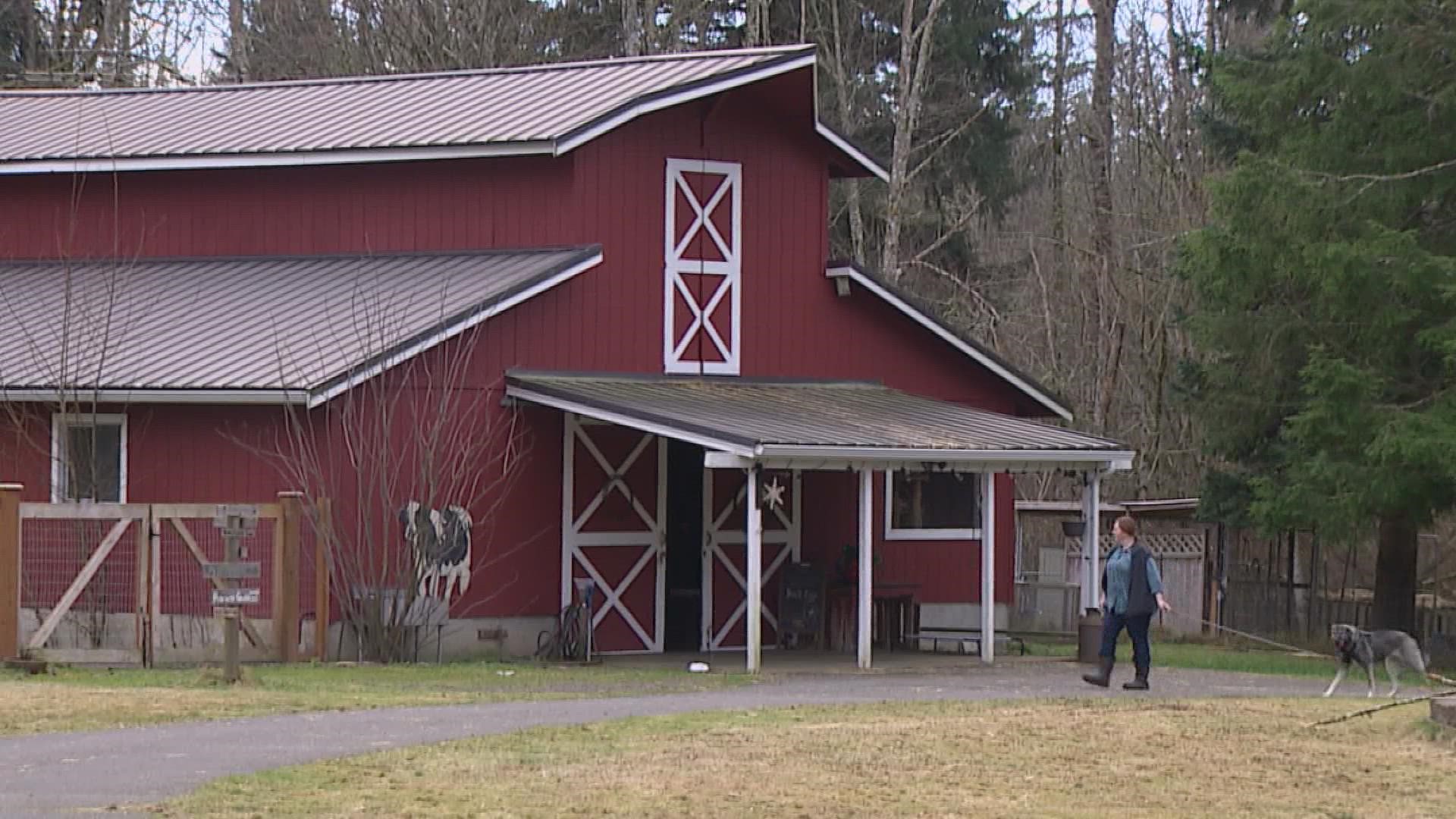MONROE, Wash. — There is a lot of concern in Washington state about the avian flu, also known as bird flu. The Washington State Department of Fish and Wildlife reports 94 cases of wild birds were detected last year with most cases found in western Washington. Along with those cases according to the U.S. Department of Agriculture the state has more than one million domesticated birds (backyard and commercial flocks) have been infected in the state.
When one bird is confirmed to have the flu, the whole flock has to be destroyed.
The last five days have been some of the toughest for Elaine Kellner. She and her husband own Hearth and Haven Farm in Monroe, which they started back in 2017 to bring pasture-raised duck eggs to western Washington.
“We've worked for five years on this farm, it was always a dream to have this," said Kellner.
Just days before Christmas, Kellner noticed a couple of their ducks had flu-like symptoms. So she reported it to the state's Department of Agriculture which tested the birds. On December 29th the tests revealed some of the ducks had contracted the avian flu, which means every bird on the farm, 170 ducks and four geese, was euthanized.
"This just feels kind of like the final blow, I mean it really is, financially it's difficult to recover and emotionally it's difficult to recover. Knowing that, that this could happen again," said Kellner.
State agriculture officials said that's the protocol to ensure the virus doesn't spread. Kellner said on top of that, according to a federal rule Kellner must wait 120 days before she can even consider repopulating birds on her farm. The USDA will give her a one-time payment, but Kellner said that's not enough to recoup her recent loss or the nearly five tons of feed which the state said she's not allowed to resell because of potential contamination.
"We can't let anybody else go through this. We can't let any other farm go through this,” said Kellner. “It's a terrible disease."
Kellner believes the state and federal level needs to do more to support small farms when there’s an Avian Flu case at their farms. She also thinks the state should consider a new approach to its protocol when it comes to Avian Flu cases.
To support Hearth and Haven Farm you can donate to its GoFundMe page.

